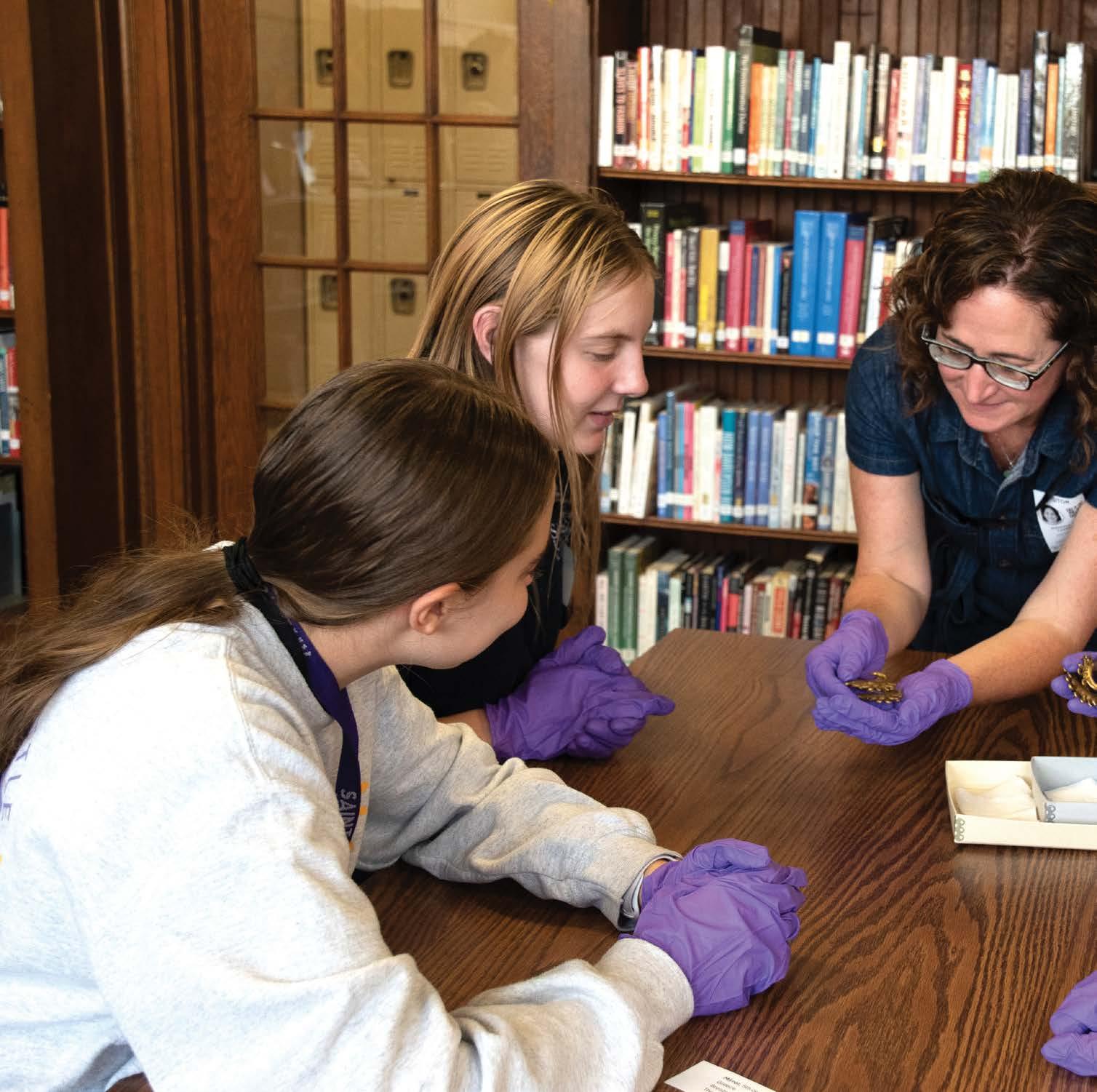

ACADEMY HUMANITIES SCHOLARS PROGRAM
The Academy Humanities Scholars Program (AHSP) is designed to prepare students for a life of compassionate leadership and service through studies in literature, history, theology and the arts. Students will learn to preserve the past, appreciate the present, and imagine the future of humanity. Equipped with this knowledge, Academy Humanities Scholars will be empowered to make intellectual, moral and spiritual decisions that are grounded in unifying love.
WHAT DOES THE ACADEMY HUMANITIES SCHOLARS PROGRAM EXPERIENCE INCLUDE?
Participants in this program will learn through courses, service learning and various experiential learning opportunities (e.g., field trips, guest speakers, etc.).
COURSE OF STUDY
Each year, students will enroll in core and/or elective courses to represent four to five humanities disciplines (Honors, College Credit Plus (CCP) or Advanced Placement® (AP®) as applicable to each student’s academic goals).
SERVICE LEARNING
Service learning is rooted in intentionality, a process that develops empathy, responsibility and self-confidence. This component encompasses “serving the dear neighbor,” a keystone of the teachings of the Sisters of the Congregation of St. Joseph. By the end of the first semester of their graduation year, Academy Humanities Scholars should have completed a total of 30 service learning hours.
EXPERIENTIAL LEARNING
Examples of experiential learning opportunities include:
• Engaging in discussions with professionals in journalism, law, entrepreneurship, performing arts, art history and more
• Attending performances at Playhouse Square and The Cleveland Orchestra
• Touring courtrooms in the Cleveland Municipal Court
• Participating in Youth Forums at The City Club of Cleveland
• Exploring special exhibitions and the permanent collection at The Cleveland Museum of Art
• Visiting the Cleveland Public Library for book discussions and author events
The most important characteristic of a Saint Joseph Academy graduate, in my opinion, is being someone who is ever in pursuit of empathetic justice. In a society where empathy is seen as weakness, it is the artist’s job to challenge that viewpoint and make people see outside themselves. Art is inseparable from justice in that it reminds us of the entire point of it all: we are here to build bridges, not tear them down.
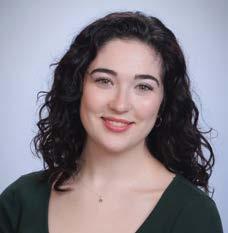
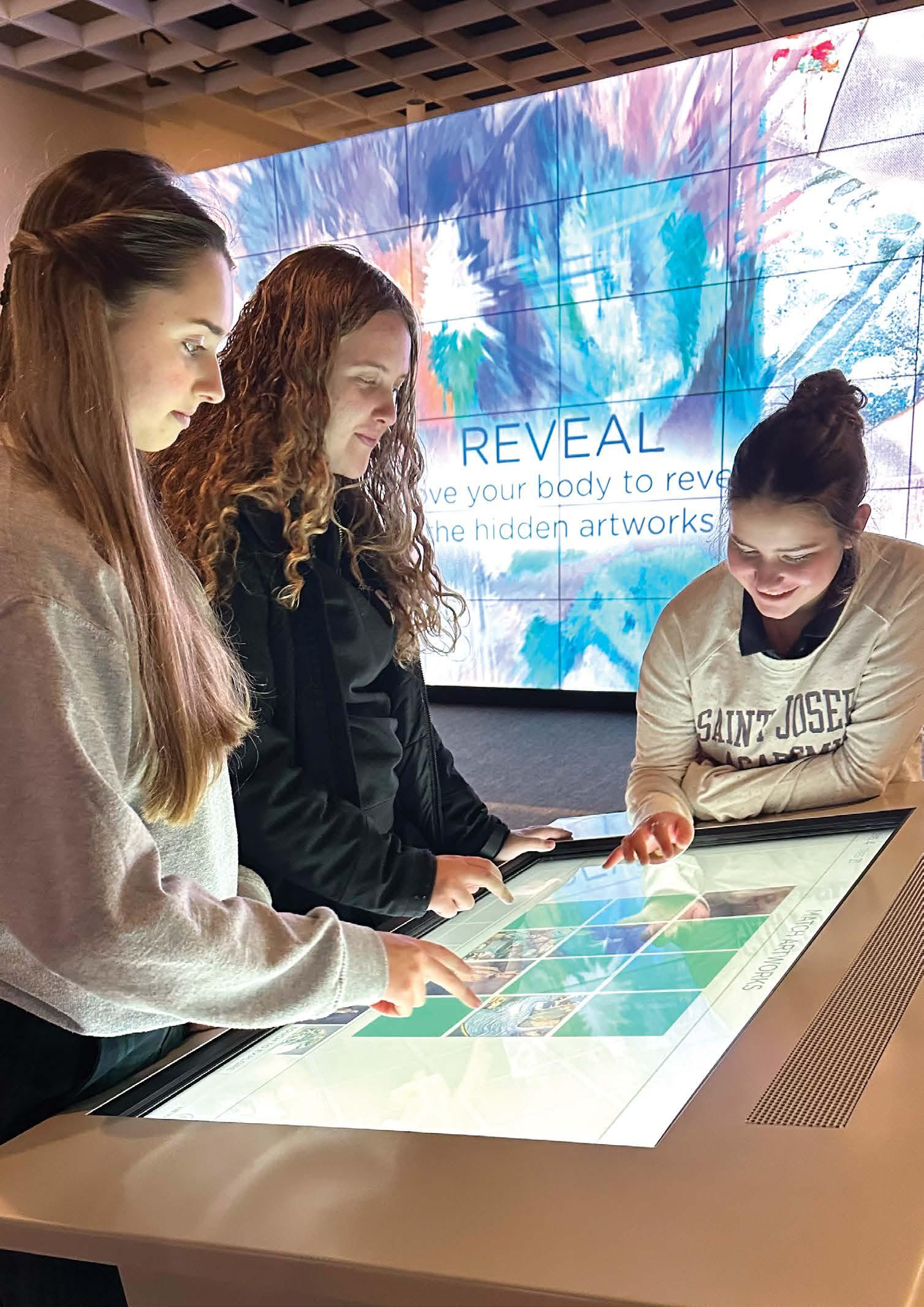
Allison Sheehan ’18 Arts Administrator, Access Specialist
The Theatre School at DePaul University, B.A., Theater Management
Academy Humanities Scholars explore The ArtLens Studio at The Cleveland Museum of Art
I joined AHSP because it was such a new and exciting opportunity to delve deeper into my love for the humanities. From this program, I’ve learned interesting things about disciplines in the humanities that I previously wasn’t aware of. The program explores a variety of subjects and encourages students to engage with unfamiliar ones.
Mya Marquard ’26
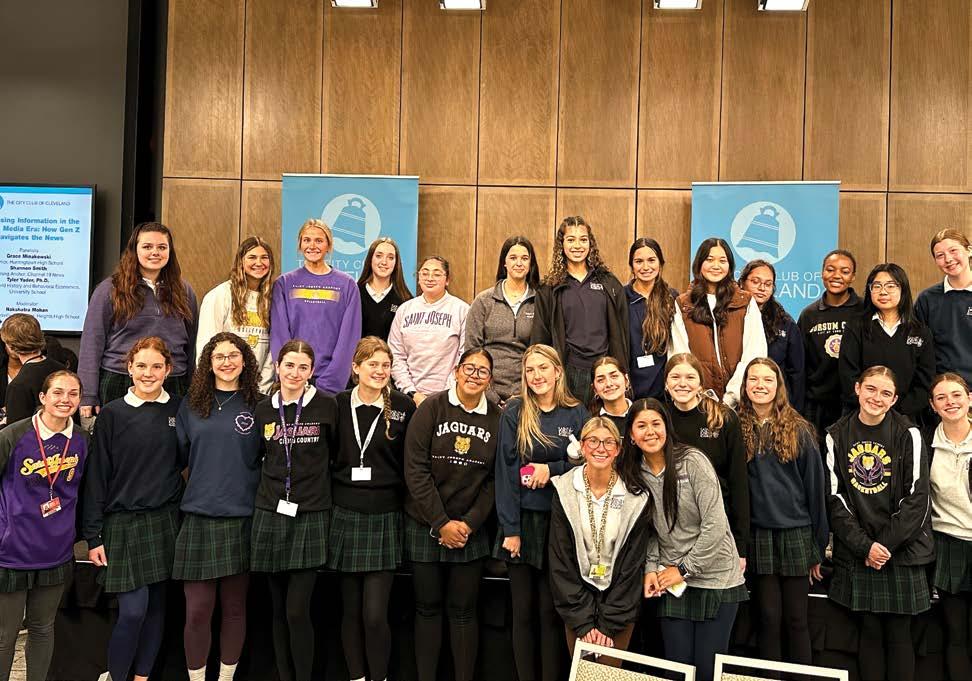
AHSP members participate in a Youth Forum at The City Club of Cleveland
I decided to join AHSP because I find myself drawn to humanities subjects, such as reading, history, and music. Also, I felt that it would help me with my career because I want to go into law and that would require interacting with people and understanding their backgrounds.
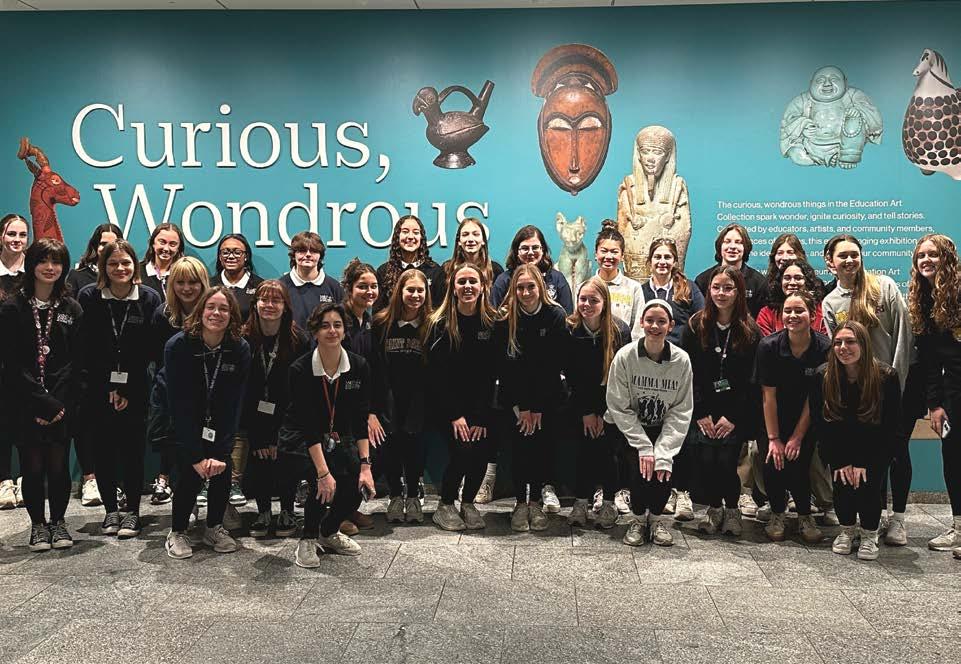
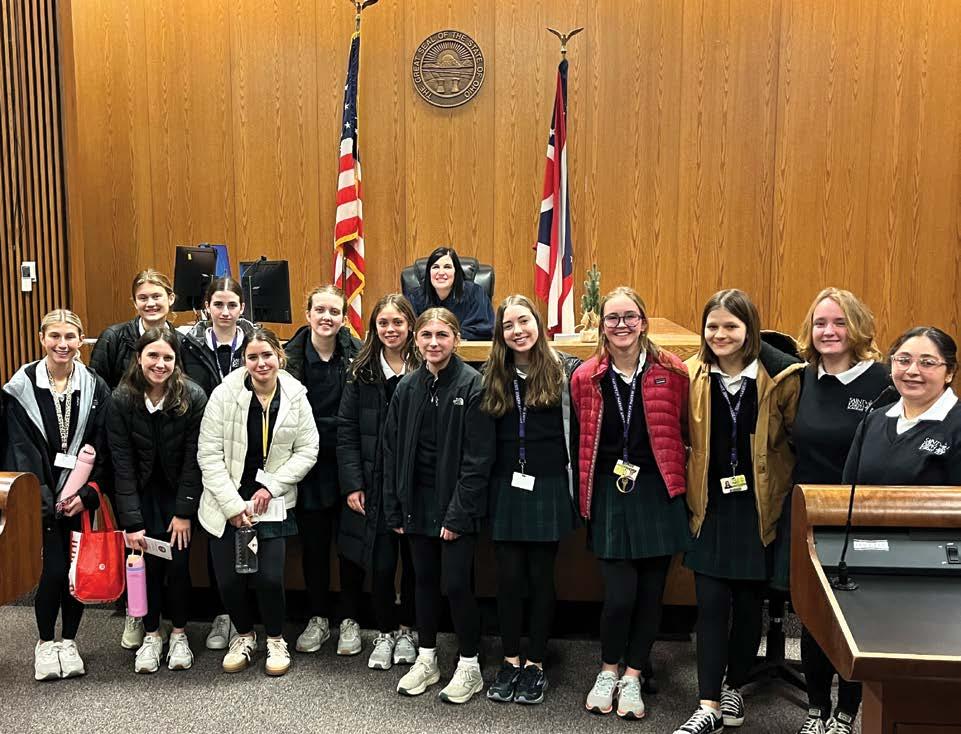
Karol Mansour ’26
Academy Humanities Scholars attend the Picasso and Paper exhibit at The Cleveland Museum of Art
AHSP members visit Cleveland Municipal Court and hear from Judge Ann Clare Oakar P’27 & ’28
Academy Humanities
Scholars create blackout poetry during National Poetry Month
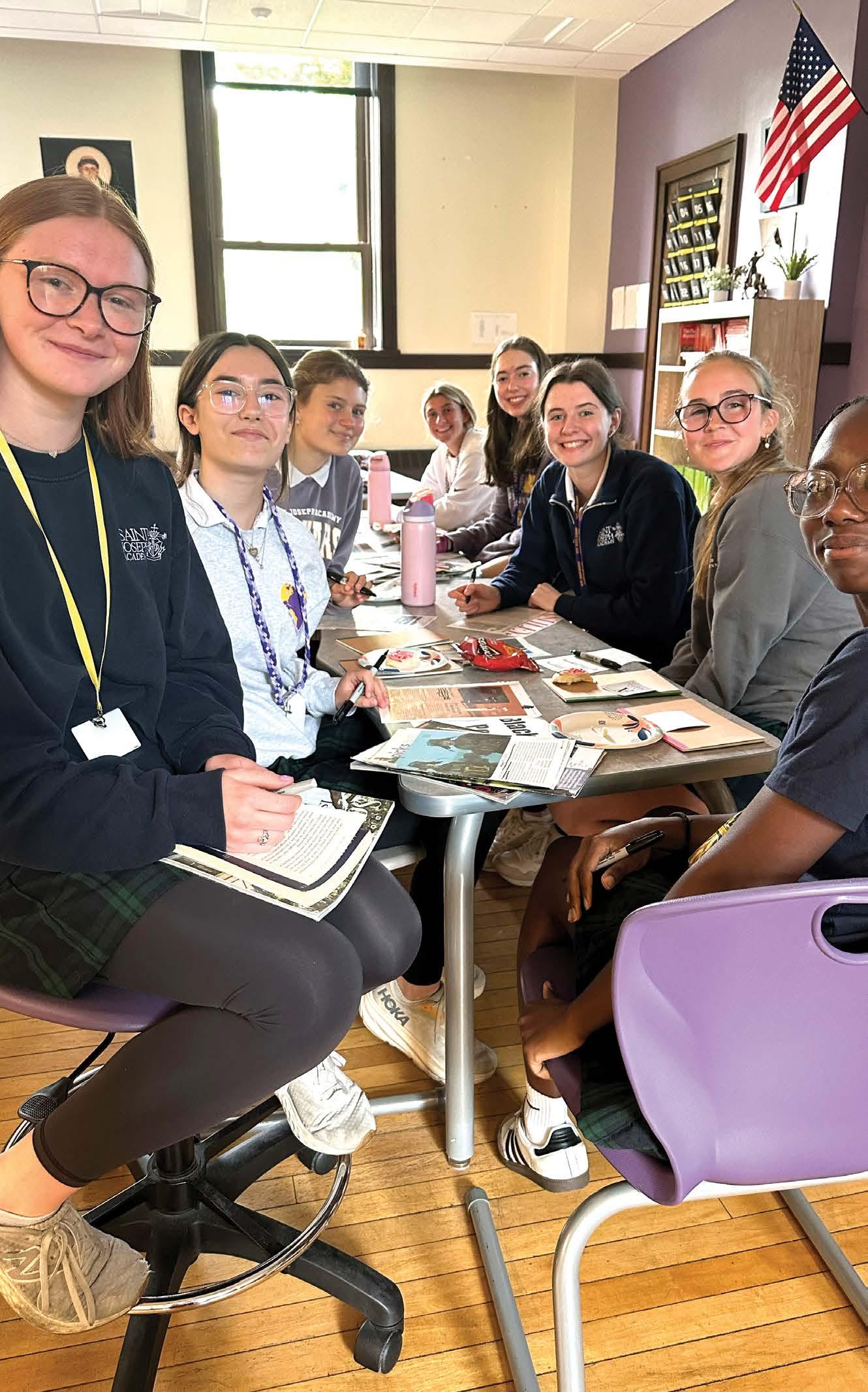
There is no more important skill than learning how to think—reading critically and thoughtfully, knowing when to ask questions, defending an idea coherently and respectfully, and even being open to feedback and editing. Those qualities are born in humanities classes and offer curious students a way to appreciate context and history. Valuing the ability to think and being open to the challenge of new ideas is an investment in the future of humanity itself.
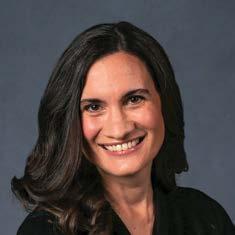
Katie
Kramer ’96
Senior Producer, CNBC’s Squawk Box Fordham University, B.A., Communication and Media Studies/History
AHSP members attend keynote address by Cleveland State University President Dr. Laura Bloomberg
Studying the humanities in high school is extremely important because it offers young students the opportunity to engage with each other and the world around them. It provides the building blocks for understanding who we are, where we came from, and where we are going in an ever-changing world. Studying the humanities is imperative for our future leaders as they make choices and decisions that will affect our world, especially as AI improves and other technologies are invented.
Dr. Christine C. Wolken
Associate Professor of Art History, Cuyahoga Community College
Case Western Reserve University, Ph.D., Art History
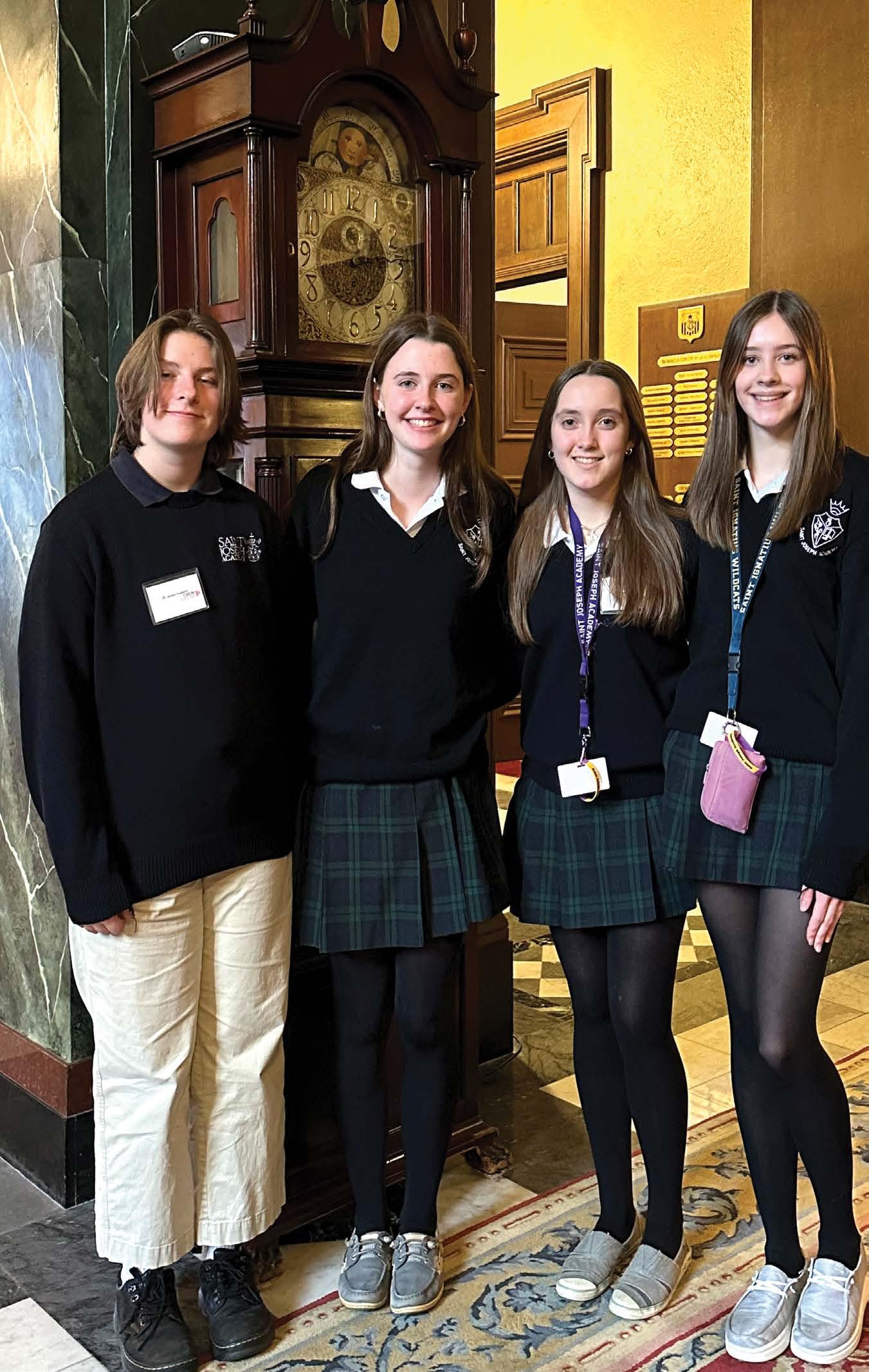
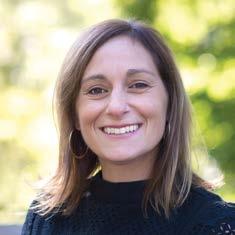
FREQUENTLY ASKED QUESTIONS
Q: WHO CAN APPLY?
A: Students who are interested in learning to preserve the past, appreciate the present and imagine the future of humanity are invited to apply to the Academy Humanities Scholars Program. The program accepts applicants during the second semester of their freshman or sophomore year. Juniors may also be eligible on a case-by-case basis.
Q: HOW DO I APPLY?
A: The Academy Humanities Scholars Program application process consists of three stages, including the completion of an initial application form, an interview with the Academy Humanities Scholars Program Director and final notification of acceptance into the program. The Academy Humanities Scholars Program begins in sophomore year and ends upon graduation in senior year.
Q: IS THERE A MINIMUM GPA?
A: There is no minimum GPA required for the Academy Humanities Scholars Program. Since many of the Academy Humanities Scholars Program opportunities occur while class is in session, students are expected to be in good academic standing in order to participate in those activities.
Q: WHAT COURSES ARE OFFERED?
A: Students who aspire to be Academy Humanities Scholars should enroll annually in core and/or elective courses to represent four to five humanities disciplines (Honors, CCP or AP® as applicable to each student’s academic goals).
Q: IS THERE A FAITH COMPONENT?
A: Yes. Through the charism of the Sisters of the Congregation of St. Joseph, the program prepares young women to live the Gospel through prayer, reflection and service to the “dear neighbor.” Service learning is an intentional, reflective process that develops empathy and compassion.
Q: WHAT IS EXPERIENTIAL
LEARNING?
A: Experiential learning involves learning environments that extend beyond the classroom. It provides students with authentic experiences in preparation for a career in a humanities discipline. By the end of the first semester of their graduation year, an Academy Humanities Scholar should plan to attend 13 or more experiential learning activities/events.
Q: WHOM DO I CONTACT FOR MORE INFORMATION?
A: Contact Academy Humanities Scholars Program Director Mrs. Becky Goede McNulty ’96 at humantities@sja1890.org.
MISSION STATEMENT
Students will become inquisitive learners who broaden their perspectives by seeking emerging wisdom; enlightened patrons who value and create the art that defines cultures and generations; informed and empathetic citizens who think critically and act with integrity; skilled communicators who seek justice and strive to mend divisions; and visionary leaders who are driven to meet the unmet needs of others and serve the dear neighbor without distinction.
